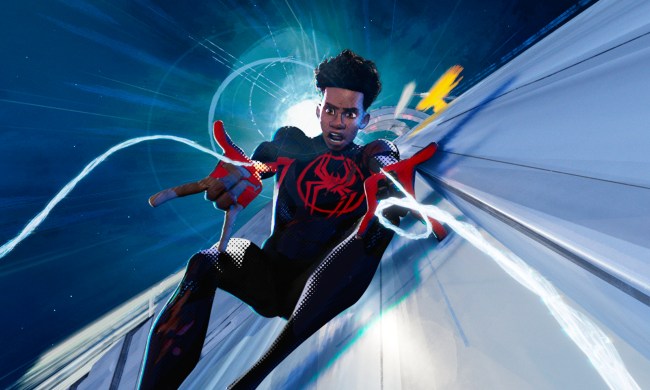Federal Communications Commission Chairman Ajit Pai said Wednesday that he believes “The greatest threat to a free and open internet has been the unregulated Silicon Valley tech giants that do, in fact, today decide what you see and what you don’t,” Pai said. “There’s no transparency. There’s no consumer protection, and I think bipartisan members of both chambers have now come to that realization.”
The statement, which was made during a Senate Commerce, Science, and Transportation Committee hearing, was surprising to say the least.
Pai was responding to a question about net neutrality. As FCC chair, he successfully led a push to repeal net neutrality regulations in 2017, meaning internet providers no longer have to treat all data equally. Pai hasn’t often been in favor of regulation — and experts say his sudden embrace of regulating big tech is hypocritical in light of his stance on net neutrality.
“I completely agree, but it’s a bit of a turnaround for him at least with his approach to how much the FCC should be regulating the space,” said Kentaro Toyama, W.K. Kellogg Professor of Community Information at the University of Michigan School of Information
In response to a question about net neutrality from Senator Roger Wicker, Pai pointed to faster internet speeds and an uptick in the number of broadband users since net neutrality’s repeal, which took effect last year. Critics say broadband usage and internet speeds increased when net neutrality rules were in place, as well. “It’s reminding me of the notion that Al Gore created the internet,” said Senator Maria Cantwell after Pai’s comment. “Chairman Pai is trying to equate the actions of the FCC with somehow enabling or forecasting the great growth of the internet economy.”
Though Pai was asked to keep his response to Wicker’s question to a minute, the head of the FCC did use some of the time to talk about the outsized power Silicon Valley tech giants. It’s something everyone from Elizabeth Warren to Ted Cruz has been saying, but critics think Pai was pointing the finger at Google and Facebook to get the focus off ISPs. He’s essentially saying “but officer! Everyone else was speeding too!”
Not long after the net neutrality repeal, 23 attorneys general filed a lawsuit against the FCC as a result. Consumer rights groups, Mozilla, and Santa Clara County emergency responders also filed a suit to overturn the FCC ruling. In 2018, Verizon throttled the Santa Clara Fire Department’s internet as firefighters coordinated their response to California’s largest wildfire on record. Verizon has denied this was a net neutrality issue.
Research indicates Netflix and YouTube have been throttled by some carriers. “The fact that ISPs like Comcast actually own major content developers and distributors like NBC further demonstrates that this is a fundamentally anti-competitive practice,” Aram Sinnreich, an associate professor at American University’s School of Communication, told Digital Trends. Do you really want to watch The Good Place or is that just surfacing as a result more often than Modern Family? (Yes, you really want to watch The Good Place.)
FCC Commissioner Jessica Rosenworcel, a Democrat, disagreed with Pai’s assessment of net neutrality at the hearing, saying, “86 percent of the American public agrees with me that we made a mistake.”
“The notion that this is something consumers don’t care about or don’t want flies in the face of the public comments that have been submitted to the FCC by the millions by consumers who normally won’t even get up off the couch to vote in the midterm elections,” said Sinnriech.
“It’s entirely possible that ISPs can be acting against consumer interests and Silicon Valley titans can be acting against consumer interests,” said Sinnriech. “Those can both be true at the same time, and only in a kind of ‘whataboutism’ modality of discourse would it even make sense to make the claim that consumers should worry more about Silicon Valley than about their ISPs. It’s just a ridiculous frame of analysis for somebody who has been tasked with looking out for the public interest.”
The Department of Justice has signaled it could bring an antitrust case against major tech companies and House Democrats have begun their own investigation. Toyama thinks the antitrust argument is finding support on both sides, though it’s a bit of a surprise coming from Pai.
Regulating big tech would also mean a major change for the people who use devices and services from Apple, Google, Amazon and Facebook every day.
“Most of us are spending the vast majority of our time online with one of these companies,” said Toyama. “I think [Pai’s] absolutely right that their power’s immense and that if regulation’s going to be directed anywhere, it should be with them.”
With so many people, of all political persuasions, mistrustful of tech companies, Toyama worries that we haven’t yet reckoned with the collision of concepts like fake news and free speech. “I think we have not figured this out philosophically, legally, or otherwise, and so as much as I do believe Silicon Valley needs to be regulated about some things,” he said, “I think these are questions, if we don’t answer in the more general cases first, we’ll end up imposing the wrong kind of regulation.”


